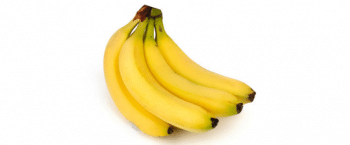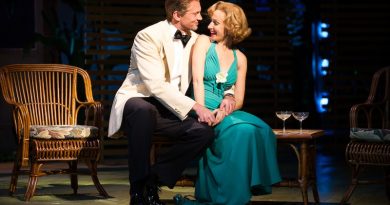Sitcom or theatre?
A group of friends try to rebuild the world one share house at a time, starting with their own commune. Clare Pickering chats with the writer Anthony Noack and director Iris-Edwige Gaillard from Banana Republic, which is premiering in the Melbourne Fringe, about how their production went from play to reality TV.

Anthony, where did you come up with the idea for the play?
A combination of having lived in sharehouses and a desire to explore issues surrounding where society is heading, specifically politically. More specifically, looking at the idea of being caught in a world where none of the options for the future seem great.
The core idea is based on being against something/protesting about something that you can’t really put a finger on, which I saw happen when I was a student at protests such as S11 (Melbourne economic forum 2000). There was an idea that people should be doing something about the state of the world, but what that was and exactly why, wasn’t clear. Especially when, for the most part, the world provided a lot of things that were guiltily embraced. The same thing is going on with movements such as the Occupy Movement and this can lead to their aims being easily dismissed.
While the show plays around with stereotypes, I didn’t want to create a work that just made fun or belittled the earnest desires behind such movements, but reflect on my confusion, which I think is shared.
The play uses devices based on entertainment (sitcom, YouTube clips) to examine these ideas against the notion of entertaining ourselves to death and dulling ourselves into acceptance.
The title, please explain?
A banana republic is an unstable a one-product economy. It came from early American-controlled farming investments in Central America. Paul Keating also used it to describe a potential future for Australia. The title reflects the economic situation of the house (a housemate unwisely invests the commune’s money) and draws on the familiarity of the term due to Keating.
Where to next?
See if there is any potential to remount at another festival. And then write a new play and have it picked up by an amazing theatre company.
Tell us about your fundraiser night.
The night went really well. We had three bands (Blackbird, Venice Music and the Sweet Somethings) at Open Studio in Northcote, a packed house and we cooked banana curries and banana bread to sell. It was a really great vibe and we generated a lot of buzz for the show.
How did you come up with the reality tv concept?
Anthony: The play was originally more focused on the politics of the household. It was late in the development that the sitcom concept came together after some feedback questioned what distinguished it from a sitcom and made it theatre. This gave us the idea of playing with that form, and there were already moments in the script that used cameras that could be used.
Iris: The text includes punch lines like in situation comedy, which is quite contrast to its political discussion. So I suggested a crossover device that lets it play on two rythms and perspectives: the tv set. Audiences on a set see a live performance, but also witness the work in progress. Sitcom is a very predictive system; it tells you when to laugh,or be moved… Theatre on the contrary is a space of freedom for the audience; you chose where/when to look. In Banana Republic you get both perspectives at the same time, including having a live camera operator so images are broadcast on a screen above the set.
What do you hope the audience will take away with them?
Anthony: An appreciation for the fact that while the world presents a myriad of confusing things to fight for or against, it’s important to still remain engaged and not be tempted to tune out, even if society is selling disengagement as a lifestyle product. That it’s OK that things aren’t black and white and easy to grasp, so long as you keep asking questions and don’t just dismiss things out of hand.
Iris: I think theatre is less about delivering a message than providing conditions for an experience. This show is meant to invite you to question your perception. “How do we perceive things differently depending on how they’re presented to us” was my lead question.
Is reality tv the new political forum?
Anthony: It presents a number of opportunities for expression if used well. Often it isn’t.
Iris: No. But politics follows the same codes as a show. Politicians are as rehearsed as actors. Even their reactions are scripted. It’s not about articulating ideas. It’s about selling a product with a slogan that’s meant to provoke reaction, not thoughts. I think the general advert-like speech we’re surrounded by impedes people’s ability to articulate ideas or to get involved with political commitment.
What was the most memorable moment during rehearsals?
We had workers knocking a large hole in the wall all day during our final rehearsals at the Owl and Pussycat.
Do you have a plan for audience members who do not want to be filmed?
The audience participation is limited as the camera is focused on the stage.
Can the audience be in the show?
Their laughs certainly are, as we record them at the start of the show to use during the performance.
Do people get voted off the banana island?
No, but it’s not a bad idea.
You have chosen an intimate venue. Does this assist in creating the perfect environment for your show?
It helps engage with the audience, but imposes limitations on movement. So it is about maintaining a balance.
Anthony, do you have political aspirations?
None currently. I don’t think I have the numbers to challenge.
Have you invited Paul Keating to see the show? If not, would you like me to arrange that?
Yes! Sounds a treat.
Tell us a bit about the characters?
Julian works as a grill chef at a fast food burger restaurant. He sees himself as just biding his time until he makes it ‘big’. The trouble is that he’s never had the gumption to move beyond his menial job. His hobbies include trying to break the 50 BPM barrier (burgers per minute) and pointing out the flaws in Jen’s political beliefs.
Jen, a well-dressed student, has started dating Geoff, an activist, and has embraced his political ways. Jen wants to help change the world, but also really likes new shoes and has plans for moving up the career ladder, which the environment keeps getting in the way of.
Geoff is probably the most direct of the group. He knows what he believes in. It’s just hard for him to make the rest of the world believe it too.
Dill is unemployed after losing his job as a fish feeder at the aquarium. He’s actually quite savvy and aware . He discovers the market and uses the commune’s money to start online trading on the stock exchange.
Writer’s note
I was at opening night and it was a fun-filled ride with an incredible cast: Andi Snelling, Matt Furlani, Scott Jackson and Alex Duncan.
Banana Republic
The Owl and The Pussycat
until 7 October
Book at melbournefringe.com.au

